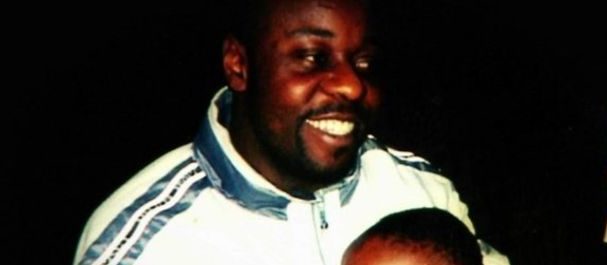George Floyd is Now a Household Name in Britain. Why Isn’t Jimmy Mubenga?
by Aaron Bastani
1 June 2020

The killing of George Floyd last week has generated a wave of protest across the United States. Given his final moments were captured on video, and the particularly sadistic behaviour of the officer who arrested him, media attention was bound to follow. But in an era of the Trump presidency and policing methods which resemble an army of occupation, celebrities and journalists are transfixed.
This is true in Britain as much as anywhere else. Piers Morgan has taken to tweeting videos of Killer Mike and documenting police intimidation with the hashtag #BlackLivesMatter. This from a man who in 2015 tweeted ‘all lives matter’ and two years later claimed Admiral Nelson helped end the slave trade. That couldn’t be more wrong, and Nelson himself described the abolitionist movement as the “damnable and cursed doctrine of Wilberforce and his hypocritical allies”.
Then there’s Caitlin Moran, who this week shared a post titled ‘75 Things White People Can Do for Racial Justice’. Yet in response to the 2011 riots, catalysed by the killing of Mark Duggan by an armed police officer, Moran asked whether the army should move in. Her thinking may have developed in recent years – deleting that particular tweet suggests as much – but this highlights a more general phenomenon: Brits happily acknowledge racism across the Atlantic but ignore it at home. Many celebrities now sharing videos from US protests have never shown any interest in those who suffered a similar fate to George Floyd here in Britain.
One such person was Jimmy Mubenga. His final words, like both Floyd and Eric Garner, were “I can’t breathe”. Yet despite being suffocated on a British Airways flight, and in view of more than a hundred people, his death went broadly unnoticed.
In a striking similarity to Floyd’s death, one passenger claimed a G4S guard – one of three deporting Mubenga to Angola – “had his knee pressed against the deportee for about ten minutes”. Flight attendant Louise Graham said that after she conveyed her concerns to the flight’s captain, he said that Mubenga was “faking it”, joking that he might have attended RADA (the drama school).
There are thousands more cases like Mubenga’s, where state violence against black people is met with nothing but a shrug. One case is that of Christopher Alder, a former paratrooper who died in police custody in 1998. In November 2011 Alder’s body was discovered in a Hull mortuary, more than a decade after his family believed he’d been buried. This came after years of pursuing the truth about how Adler had died – years during which Alder’s sister Janet was monitored by undercover police officers.
In the case of Mubenga, the guards who killed him escaped punishment. Such an outcome is so common as to be mundane, especially with official law enforcement. The last time a British police officer was convicted for a death in custody was 1969. This is all the more astonishing when you realise the numbers involved: more than 1,700 people have died in such conditions in England and Wales since 1990.
That Brits feel their country is immune from the racism that pervades America is somewhat understandable. Over two million people are incarcerated in the US, with African-Americans five times more likely to be incarcerated than their white counterparts. Astonishingly, more than half of all black men without a high-school diploma are incarcerated at some point in their lives. Such appalling inequality feeds through to basic healthcare: the average life expectancy of an African-American male is 72, the same as in Palestine or Honduras.
But while the scale and violence of America’s prison-industrial complex is unrivalled, Britain still has issues of its own, a fact many seem oblivious to. This is all the more frustrating given it is here where their ire can make a difference.
Black people are 40 times more likely to be stopped and searched in the UK – a policy defended by some presently calling out the conspicuous racism of American policing. Young black people are nine times more likely to be locked up in England and Wales than their white counterparts, while BAME offenders are far more likely than others to be jailed for drug offences.
Then there are the nation’s respective histories. While many in Britain accept that the US was founded on slavery, startlingly few feel obliged to deal with Britain’s own colonial past. ‘It was a long time ago, let’s move on’ you’ll often hear, or worse, calls to actively celebrate this history. Some of the very same people lambasting police violence in Minnesota have at the same time refused to acknowledge the genocidal consequences of Britain’s empire. Towards the end of the 19th century economically-induced famine killed as many as 60 million worldwide, much of it driven by the British. Famine policy, from Ireland to Bengal, was vindicated through appeals to Malthus and social Darwinism.
That shouldn’t mean modern Britain begs for absolution. It should, however, prompt careful reflection about racism in Britain today, and the extent to which it shapes our values, politics and economic life.
Perhaps naming racism overseas allows one to avoid it here. Perhaps interventions from certain celebrities or journalists are made precisely because they have no impact. This is about an impotent politics of disapproval that will achieve very little – and that’s the point. Remember this next time there is another Jimmy Mubenga, or Christopher Alder, or Joy Gardner. There will be.
Aaron Bastani is a Novara Media contributing editor and co-founder.